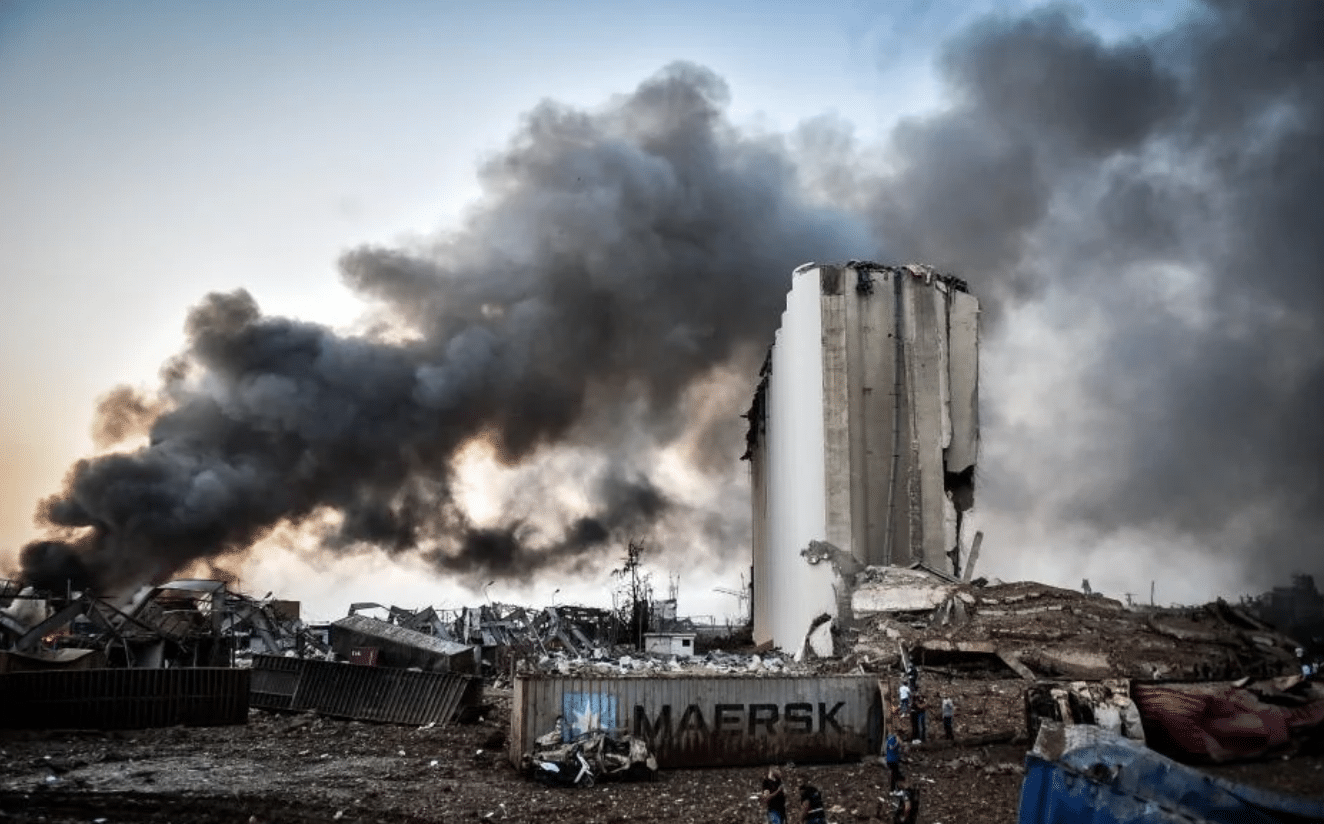One year after one of the largest non-nuclear explosions in history, the Beirut, Lebanon blast that demolished the port and caused damage throughout the area, the city is still recovering. People gathered to at the site of the explosion to mark the anniversary. The explosion resulted from the detonation of tonnes of ammonium nitrate, a commonly used agricultural fertilizer. It can be highly explosive and can also be used to make explosives. The ammonium nitrate entered Beirut’s port on a Moldovan-flagged ship, the Rhosus, in November 2013, and had been offloaded into a storage facility, referred to as hangar 12 in Beirut’s port in October, 2014.
The Beirut explosion killed 218 and wounded 7,000 people. Many of the injured acquired a physical disability. The blast damaged 77,000 apartments and displaced 300,000 people.
On the anniversary, the U. S. Biden Administration pledged $100 million (in addition to several hundred million that has already been promised) to support the Lebanese efforts to rebuild.
Ned Price, Spokesperson for the Department of State said at a daily briefing: “It is the one-year anniversary of this tragic explosion in the Port of Beirut that killed hundreds of innocent Lebanese citizens. As you know, the International Support Group for Lebanon met earlier this week on the eve of the anniversary. Those members expressed their solidarity, as do we, with the families of the victims and with those whose lives and livelihoods have been affected by it. In addition to those killed, thousands more were injured and thousands more from there, their livelihoods were impacted by this. The International Support Group did indeed urge authorities to swiftly complete the investigation into the port explosion so that the truth may be known and justice may be rendered. The ISG observed with deep concern the broader context in which this anniversary takes place. Of course, that includes the worsening economic crisis that has affected nearly all elements of Lebanese society, its people, its institutions, its services. And the ISG did call upon Lebanese authorities as a matter of national responsibility, as has the United States in this context and previously, to urgently take every possible step to improve lives for the Lebanese people. And in this case, that means putting aside their political, their personal, their partisan differences for the good and for the benefit of the Lebanese people. A year has now passed without a government in Lebanon. Of course, there is now a designation of a new prime minister, but Lebanon’s leaders do need to, without delay, support the formation of an empowered new government, a new government that is empowered to take on the reforms that are long overdue.”
